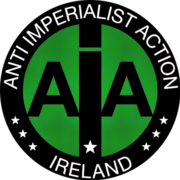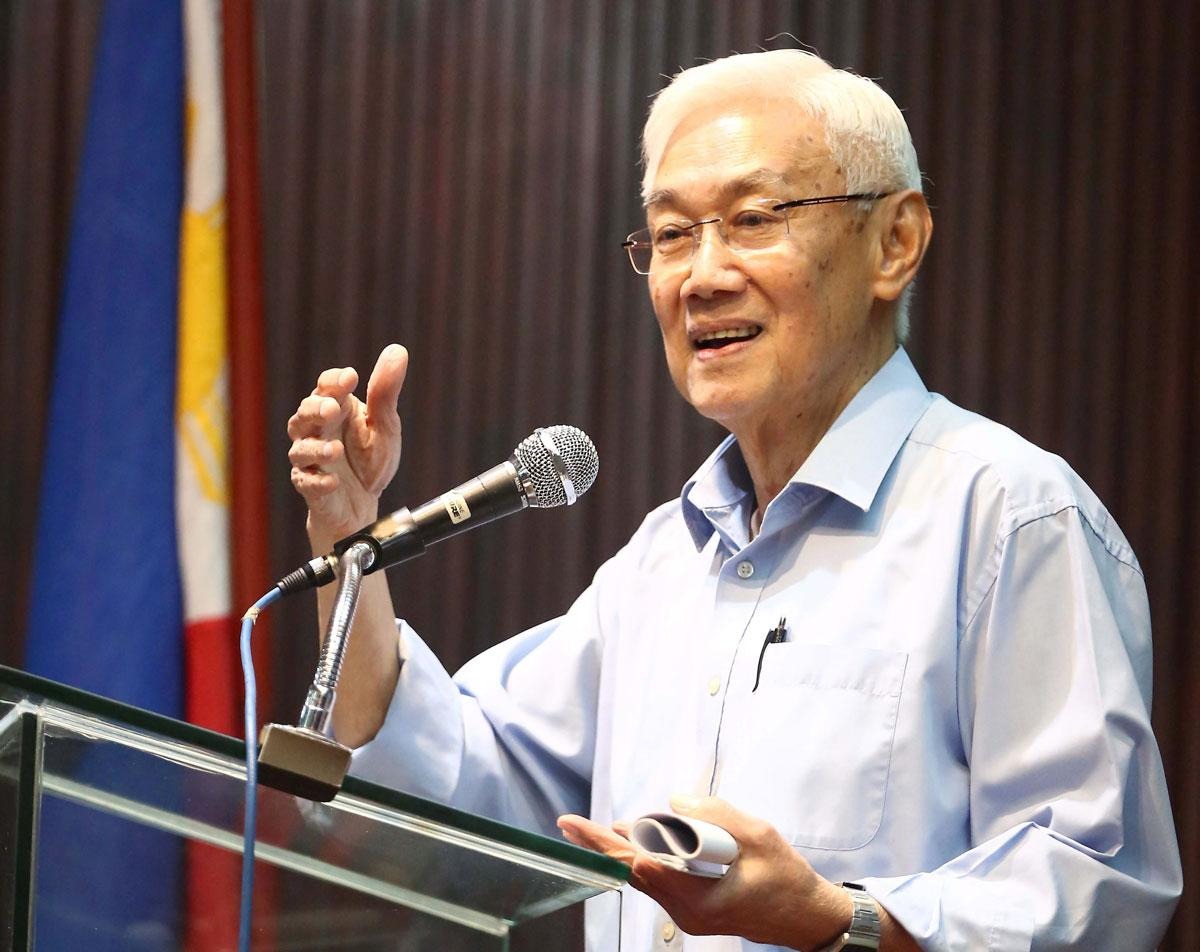Anti-Imperialist Action Ireland extends its revolutionary solidarity to the National Democratic Front of the Philippines, Communist Party of the Philippines, New People’s Army, and all other friends, family, and comrades of Luis G. Jalandoni after his peaceful passing on June 7th at the age of 90. We understand that his tremendous loss will be heavily felt by Filipino revolutionaries. He was the Chief International Representative and a member of the National Executive Committee of the NDFP.
The National Democratic Front of the Philippines is the broad front uniting the forces of their national democratic revolution and protracted people’s war. They are struggling to overthrow a fascist comprador regime that has opened their country up to unrestrained imperialist plunder, and in doing so have built one of the most advanced ongoing revolutionary struggles on earth. This war has been waged by the New People’s Army under the leadership of the Communist Party of the Philippines since 1969. Born in 1935 to a family of landowners, Jalandoni survived the Japanese occupation of the Philippines and went on to become one of this revolution’s key leaders. He was a former Catholic priest who militantly agitated the masses of Negros against landgrabbers and the Victorias Milling Company. He took part in intense mass struggles such as the victorious “long march” against warlord-congressman Armando Gustilo. In 1972 he was one of the founders of Christians for National Liberation, now a section of the NDFP. That March he joined the Communist Party of the Philippines.
A true servant of the people, Ka Louie played a leading role in the fight against Martial Law after it was initiated by dictator Ferdinand Marcos in 1972. Together with Ka Pendong he formed the Negros Special Party Secretariat to launch the rebellion on Negros Island. They built the first NPA embryo in Southern Negros and slowly won over the masses. Ka Louie helped found the National Democratic Front of the Philippines and was elected to the National Executive Committee. He organised “the frogmen”, the progressive clergy who aided the NDFP and CNL. They acted as messengers and delivered rifles to the NPA in golf bags. Repression in Negros was intense and even student activists such as Virgil Ortigas were murdered en masse. In September 1973 Jalandoni was captured with his comrade and future wife Maria Consuelo “Coni” Kalaw Ledesma in Bacolod. This event did not go unnoticed by Irish revolutionaries and was reported in Republican News, which described it as one of the “most dramatic episodes of resistance.” In his possession was a revolver and various writings by Chairman Mao.
Ka Louie was kept in a dark windowless cell in Fort Bonifacio for almost a year before his release in 1974, and he married Coni Ledesma that November. His late comrade Jose Maria Sison would recall that Ka Louie led the frogmen in smuggling him and other top leaders of the revolution from safehouse to safehouse, acting as special couriers and escorts to avoid capture. Jalandoni worked extensively with the Irish anti-imperialist and internationalist Jack Hynes who played a remarkable role in these missions. In 1975 Ka Louie was one of the key leaders of the victorious La Tondeña worker’s strike, smashing the illusions of martial law and marking a major shift in the struggle. In 1976 he and Coni Ledesma were assigned to lead the international work in the National Democratic Front of the Philippines after going into exile in the Netherlands. In 1977 he became the Chief International Representative of the NDFP and later founded their international office in Utrecht. Comrades of Ka Louie also established the Filipino-Irish Group based in Meath Street, Dublin that year. They were a leading force in the campaign to free the Negros Nine which included Fr. Niall O’Brian.
As an international representative and negotiator Ka Louie held a principled internationalist and revolutionary line. He put forth an unrepentant commitment to national liberation and socialist revolution during peace talks with various governments as Chairperson of the NDFP Negotiating Panel. He was involved in talks with Corazon Aquino’s government in 1986. He headed negotiations with Ramos in 1995, Estrada in 1998, Arroyo in 2001, and then Aquino III and Duterte in 2016. At every step he was dedicated to achieving the success of the revolution, always challenging the semi-colonial oppression of his people. He refused every chance to sell out and never compromised on fundamentals. A far cry from the betrayal of the Irish struggle in the Good Friday Agreement, Jalandoni always brought his principles to the table. He also importantly articulated the line of the Second Great Rectification Movement on the international stage and was a bulwark in rebuking the distortions of rejectionists, imperialists, and Trotskyites at the time.
Luis Jalandoni had visited Ireland and helped forge strong bonds between the Filipino national democratic revolution and Irish republicanism. Under his tenure the NDFP mutually supported the Irish armed national liberation struggle. Ka Louie, Sison, and the Filipino internationalists stood by genuine Irish socialist republicans after 1998. The NDFP correctly identified the Good Friday Agreement as a betrayal of our struggle and Ka Louie continued to voice support for various republican organisations labelled as “dissident” by the counterrevolutionaries. Thanks to the work of Ka Louie and the NDFP International Office, Anti-Imperialist Action Ireland was able to build a warm and comradely relationship. We were always met by his consistent professionalism and cordiality. At the 3rd International Theoretical Conference held in Amsterdam for example, Ka Louie expressed his deep interest in our country and national liberation struggle, showing kind solidarity and hospitality. He will be remembered fondly.
Red salute to Ka Louie, hero of the revolution!
Victory to the People’s War in the Philippines!

